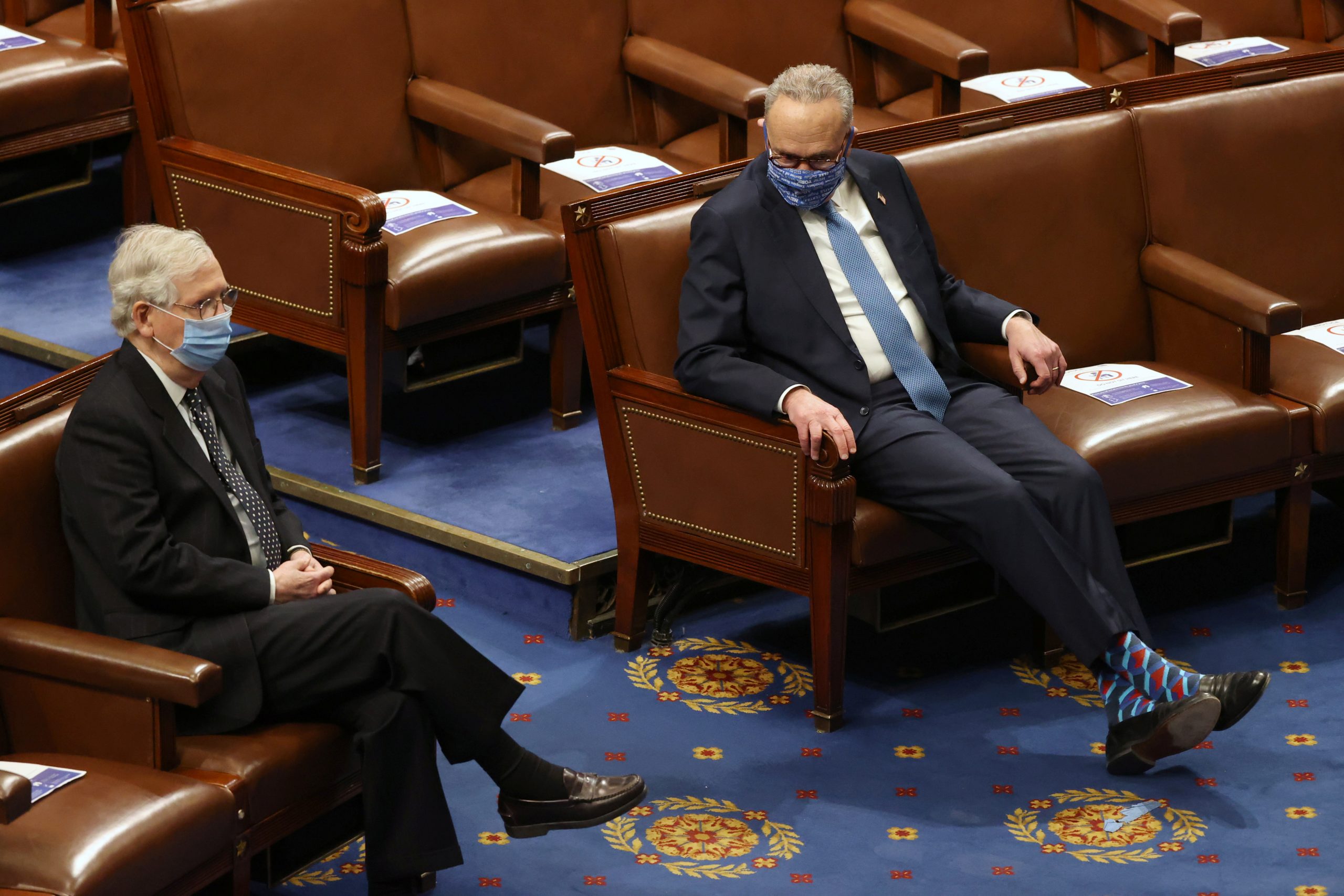Facing a 50-50 partisan split in the U.S. Senate, the chamber’s top Democrat and Republican discussed adopting a power-sharing deal similar to one struck two decades ago in similar circumstances, a Democratic spokesman said on Tuesday.
Democrat Chuck Schumer, set to become majority leader on Wednesday thanks to incoming Vice President Kamala Harris’ tie-breaking vote, told the chamber’s top Republican, Mitch McConnell, that he favored adopting a deal along the lines of the 2001 arrangement “without extraneous changes from either side,” a Schumer spokesman said.
Recognizing that the vice president could not be a constant presence in the chamber, the 2001 agreement split committee memberships evenly and mandated that both leaders seek to attain an equal balance of the two parties’ interests when scheduling and debating legislative and executive business.
When one party has clear control of the Senate, it holds committee chairmanships along with a majority of committee seats and dictates the chamber’s agenda.
McConnell said last year that if the Senate did split 50-50 along party lines, he assumed the chamber would embrace a similar arrangement to that of 2001.
But in the talks with Schumer on Tuesday, McConnell also sought to keep the Senate’s legislative filibuster, according to his office. Some Democrats favor changing the rules so that legislation could pass on a simple majority vote. But McConnell wants to keep the rules requiring a super-majority of 60 votes to overcome a filibuster and advance legislation.
“During today’s meeting, Leader McConnell expressed his long-held view that the crucial, longstanding, and bipartisan Senate rules concerning the legislative filibuster remain intact, specifically during the power share for the next two years,” Doug Andres, a McConnell spokesman, said.
“Discussions on all aspects of the power-sharing agreement will continue over the next several days,” Andres said.
Republicans currently hold the majority in the Senate. But three new Democratic senators, including the winners of a pair of Georgia races and Harris’ successor are set to be sworn in on Wednesday, creating the 50-50 split.
They have plenty of urgent business facing them in the coming days and weeks, including confirming Democratic President-elect Joe Biden’s Cabinet nominations, debating another round of COVID-19 relief and President Donald Trump’s second impeachment trial, expected after his term ends on Wednesday.
That proceeding, on a charge of inciting insurrection, could lead to a vote to ban Trump from running for office again after his supporters’ deadly Jan. 6 storming of the Capitol.
Schumer and McConnell made progress on “quickly confirming President-elect Biden’s nominees and conducting a fair impeachment trial,” the Schumer spokesman said.
(Reporting by Susan Cornwell; Editing by Scott Malone and Peter Cooney)

























 Continue with Google
Continue with Google